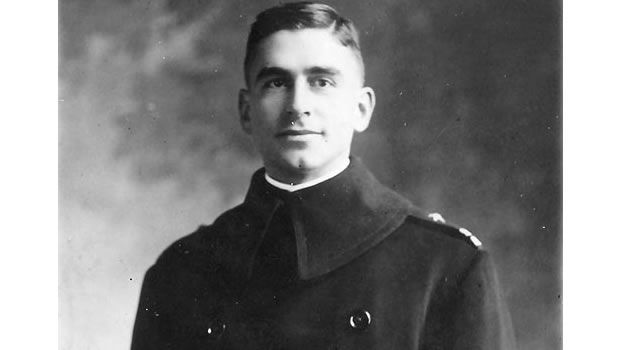The explosion was too loud. Edouard Izac had tried his best to maneuver the ship USS President Lincoln to evade the German Submarine U-90. But it had become impossible. The Germans had calculated their moves. Unknowingly to Izac, the Germans had placed three—not one—but three torpedoes. These were armaments consisting of long cylindrical self-propelled underwater projectiles. The Germans had positioned the three torpedoes strategically in areas they knew the USS President Lincoln would pass in an attempt to run away from their U-90 submarine. When the ship USS President Lincoln came into contact with the torpedoes, they detonated. And the explosion was too loud and scaring. The USS President Lincoln sank.
The Germans worked hard to save the occupants of the sank ship. They had to take as many soldiers from the US ship prisoners as they could. The more soldiers they would take captive, the bigger their victory of that May 31, 1918, attack would be.

Izac was one of those taken aboard the U-90 submarine as a prisoner of war. The Germans started their journey back to Germany to take their captives to the prisons in Germany.
Izac was very discouraged. Only two years before, his daughter Cabell had been born. Could he manage to live in prison so far away from his daughter? No, he had to try and get back home to his daughter and wife.
Family Life
Edouard Izac was born on December 18, 1891, in Ceresco, Iowa. His father was Balthazar who came from Alsace-Lorraine, Germany. His mother was Mathilda Geuth who hailed from Philadelphia, although her family line was traced from Baden-Wurttemberg, Germany.
Izac attended Werntz Preparatory School in Annapolis, Maryland. He joined high school at South St. Paul, Minnesota and later the School of the Assumption in Cresco, Iowa. He finally graduated from the United States Naval Academy in 1915.
Interestingly, Izac married Agnes Cabell, the daughter of General De Rosey Carroll Cabell, the day after his graduation from the Naval Academy. His wife died in 1975, fifteen years before he passed on.
His first job was on the battleship, USS Florida (BB-30). He worked hard and was promoted from ensign to lieutenant on the junior grade. With his promotion, he sought a more challenging job—the Naval Transport Services. It was while he worked here when his daughter Cabell was born. With his performance, he was transferred to the Troop Transport USS President Lincoln in mid-1917. Izac made five successful trips to Europe and back using this US Navy ship from October 18, 1917.
But then on this fateful day, May 31, 1918, the USS President Lincoln was sunk by the German Submarine U-90 and Izac captured alongside others as a prisoner of war.
Click Next to Read More

